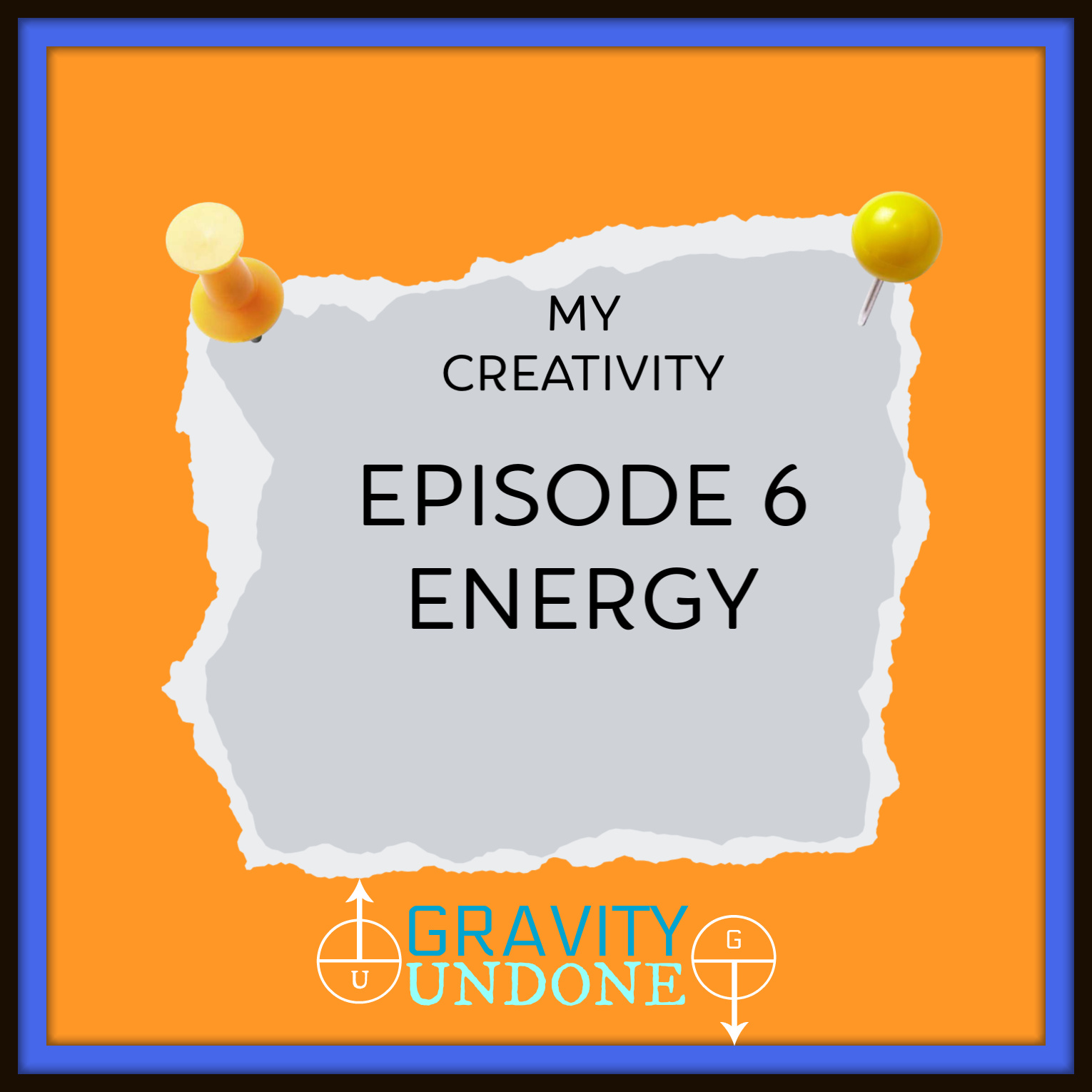Intro:
Hi, welcome to My Creativity – the podcast about being creative and producing output. I’m your host Surrey
I reveal how I work, my projects, my process… well, my creativity. From the planning and goal setting, to how I stay accountable for my output, to the way ideas pop into my head and to the frameworks I use to stimulate my creativity and formalize it.
Next weeks goals:
exit plan
season 3 formatted
more website: specifically
– add social icons to exit plan episodes
– create product pages for shop
Energy
Multiple people have at various times asked how it is I can get anything done first thing in the morning or after work. Isn’t my mind fried? Well, obviously it isn’t. But why?
Brendon Burchard, author of High Performance Habits, likes to say a power station doesn’t have energy it creates it. Well that’s all well and good but I know there was once a time when the thought of doing anything except staring at TV or playing computer games was well beyond me. My mind was fried at the end of the day. I’m a computer programmer, analyst and technical architect during my day job. Suffice to say my main tool of trade is my brain. So it’s reasonable that after using it all day to think through IT problems, develop new solutions and understand complex relationships between different pools of data my tank would be dry. But I’ve since learned a secret that put a stop to that. Want to hear it? It’s pretty dumb. Ok, your mental reserves – your strength of willpower – is limited only by your belief that it is limited. What? I know how you feel. That’s how I felt when I first heard it. But I found that after reading the research on the topic and practicing mindfulness that it not only started to make sense but started to work.
Old school of thought:
It was previously thought that willpower was a pool that got depleted during the day. Ego depletion model it is called. But more recent research has failed to duplicate that result. Additionally after some experimentation it was found we have essentially unlimited willpower. In part this comes back to growth mindset versus fixed mindset. If you don’t know what I’m talking about then go back and listen to episode 2 where I talk about Carol Dweck’s work on mindset. The short version, and there are complications and subtleties involved for sure is: In a study conducted by the Stanford psychologist Carol Dweck and her colleagues, published in the journal Proceedings of the National Academy of Sciences, Dweck concluded that signs of ego depletion were observed only in test subjects who believed willpower was a limited resource. Those participants who did not see willpower as finite did not show signs of ego depletion.
Michael Inzlicht, a professor of psychology at the University of Toronto and the principal investigator at the Toronto Laboratory for Social Neuroscience, believes willpower is not a finite resource but instead acts like an emotion. Just as we don’t “run out” of joy or anger, willpower ebbs and flows based on what’s happening to us and how we feel. Viewing willpower through this lens has profound implications.
So motivation and willpower is like an emotion. We can’t run out of it but it does mean we need to manage our experience of it so it is sustainable. Just like we don’t want to stop feeling sadness but rather we want to manage it so it is less likely to become depression. We want to manage our willpower and motivation so it doesn’t desert us when we want it and need it. So what are some things to keep in mind?
The number one thing that keeps our energy levels up is doing something we enjoy and / or find purpose in.
Multi-tasking kills motivation and willpower,
Lack of sleep prevents us from focusing and stops our bodies from functioning correctly at all,
Repeating unhelpful stories about ourselves pushes the fixed mindset.
What have I done and what do I do to keep my energy up and keep me motivated?
1. eat well. Forget any special diet. You know how to eat well, you know what you shouldn’t eat. The thing that is missing is knowing why you should eat well. We all know our diet should comprise primarily of fruit and vegetables that we prepare ourselves. IE: low processing before we get our hands on them. This is important because the types of processing we can do in our homes is different from the types of processing that can be done industrially and it is the fruit and veg that does us good, not the additives used to ensure shelf life and good appearance. Why eat well? Our bodies and brains have evolved over millions of years to perform their function while consuming fruit, veg and wild caught or grass fed meat and fish. You can forego the meat if you prefer and many cultures do, so obviously that can be done. If we give our bodies what they were built to use they will work the way they are meant to work. That’s why we eat right.
Personally I use intermittent fasting. I initially tried the 5/2 diet which is 2 days of the week without eating (technically you can have like 500 calories or such, but I found it easier to skip altogether). But I found the 2 days fasting just too tricky to maintain and I’d be starving hungry and not feeling energised at all. Others have great success. I instead to 16/8 ro 18/6 fasting. Which means 16 – 18 hours without calorie intake with just 6 – 8 hours to eat. It sounds tricky but what it really means is I don’t eat breakfast until 1pm. So easy to do. I just go to work with my breakfast in a thermos and eat it after I’ve been for my lunchtime run. I get home at 6:30pm and generally dinner is ready so I eat and stop eating about 7-7:30. It’s that easy. I initially would get hungry but now I’m so used to it. I think because it is every day I retain the same routine and that becomes my pattern. But I’m a creature of routine and predictable patterns (that is, the patterns are predictable to me though others may have the illusion that I’m spontaneous. Except my wife. She knows I can’t handle sudden course changes and I need warning or my brain goes haywire. So my apparently spontaneous actions are actually planned moments of spontaneity).
2. exercise daily. Again. We all know this. It isn’t hidden secret sauce known only to a select few. We all know we should exercise often and regularly. I walk the dog, garden, run, ride and do body weight resistance training. Others might walk, swim and dance. At the least you should walk for half an hour a day. It can be done while doing other stuff like shopping, talking, or listening to podcasts.
3. work on the train in the morning. Watch Netflix on the train home. I work on the train in the morning on my scripts, books and other creative stuff. By engaging in something I love first thing I keep my energy high. Netflix on the train home keeps me consuming sci fi and fantasy and allows me to switch mental modes from work to free imagination.
4. I have stopped watching television and reduced game playing to 20-30 minutes maximum once or twice a week. This is because I gain no additional benefit from these activities. TV is just full of ads for things I don’t care about or presents news designed to incite fear or anger. I can get all the video entertainment I need on demand without ads and so do it on the train on the way home or in the evening with my family.
5. get to bed at a decent time on the weekend so I’m up at 6:30 – 7am and able to get stuff done before the day starts. By 9am I’ve usually had a good hour of my work, the chance to sit and enjoy a slow coffee, done the dishes and other bits and pieces. So i can go out with the family or work around the house. Sleep is so important. Forget these people who say you aren’t committed unless your up at 4:30am There’s nothing magical about that time and it is a false economy as it means you need to be in bed by 8:30pm or you will become chronically sleep deprived which is the opposite of being productive.
6. I write my goals down and always, always refer them back to my annual priorities which have been aligned to my mission goals. This way i know i am always moving forwards. With goals that lead toward my mission and my mission derived from my passion I maintain a sense of forward momentum. Every week I report on this podcast the tasks I’ve completed and goals I’ve reached. By seeing those goals tick off I retain a sense of purpose to my activities.
And one of the biggest things i do is mindful result visualization. You’ll hear similar things from the law of attraction, the secret and others. But it isn’t magic or “the universe” sending things to me. It is a way of enjoying the feeling of success before you have it. Sort of the opposite of worry. Worry is disliking the feeling of failure before it happens and for some reason so many people do it. I work hard every day to enjoy ahead of time the feeling of excitement and elation from achievement. It means I make decisions that head toward success rather than steer away from failure. If you can see the difference. mind you, failure is just natures way of teaching you how to succeed so don’t be afraid of that in the slightest.
So that’s energy.
next week is an interview I did with Fox Ward.
new goals:
– exit plan
– send out season 3 scripts with a deadline for the lines to return.
– Add social links and feed links to my other podcast episode pages.
– finish first draft up to chapter 3 of book 2

